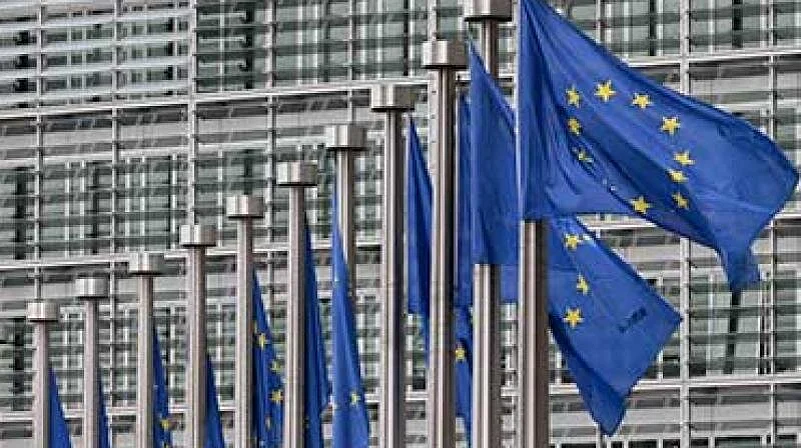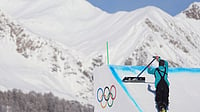The Brexit brawl kicked into high gear Friday on sticking points over Northern Ireland and French fishing, coming almost a year after a deal on a free trade agreement was supposed to have officially sealed the separation between the European Union and the United Kingdom.
The top Brexit negotiators from both sides entered talks again, with troublesome trade issues in Northern Ireland taking centre stage.
If they fail to find a common solution, the suspension of the trade deal and even retaliatory measures might be possible between the two.
The EU is looking for a deal by Christmas.
“Obviously, there is still quite a big gap. And that's what we've got to work through,” UK chief negotiator David Frost said as he entered a lunch meeting with his EU counterpart, Maros Sefcovic.
Making matters worse, fish might also be pushed onto the menu, with French fishermen more vocal about blocking ports for what they see as British duplicitousness in refusing to grant them all the fishing licenses they want.
While fishing licenses might be easily solved with some goodwill, the standoff over Northern Ireland is different and fundamental.
Northern Ireland is UK territory but effectively remained part of the EU's borderless trading market for goods when the UK left the bloc last year, causing practical problems for businesses and institutional wrangling over which side is in charge of what.
The UK also is insisting the EU cede final legal oversight by its top court of any disputes on Northern Ireland trade and instead make them subject to independent arbitration, something the 27-nation bloc is flatly rejecting.
“The governance arrangements as we have them don't work," Frost said. "We need to take the (EU) court out of the system as it is now, and we need to find a better way forward.”
Beyond rejecting any moves on the court, the EU is proposing concessions to the UK on how to ease transport and customs between Britain and Northern Ireland.
Under the new rules put in place this year, goods must be checked between Britain and Northern Ireland and meet EU standards. Sefcovic proposed changes that he said could cut checks on food, plants and animals by 80 per cent and paperwork for transport companies in half.
He said some trucks crossing the Irish Sea from Britain into Northern Ireland could see their red tape reduced from 100 forms to just one.
Frost acknowledged that the EU had seized the initiative.
“The EU have definitely made a good effort in pushing beyond where they typically go in these areas, and we're quite encouraged by that, but obviously there is still quite a big gap,” he said.
Sefcovic sounded more optimistic after visiting Northern Ireland on Thursday.
“I believe that we could be in the home stretch with our proposals on the table,” Sefcovic told the BBC.
“Let's try to solve all these issues before Christmas, because I think that would be the best Christmas gift we can give to the people of Northern Ireland.”
The fishing issue, however, is making post-Brexit relations even tougher, especially with key EU member state France.
France wants its EU partners to act as one if London won't grant more licenses for small French fishing boats to roam close to the UK crown dependencies of Jersey and Guernsey, just off France's Normandy coast.
French fishermen on the English Channel are now threatening blockades in ports like Calais and Boulogne, something that could have a quick and direct impact on trade with the UK.

























